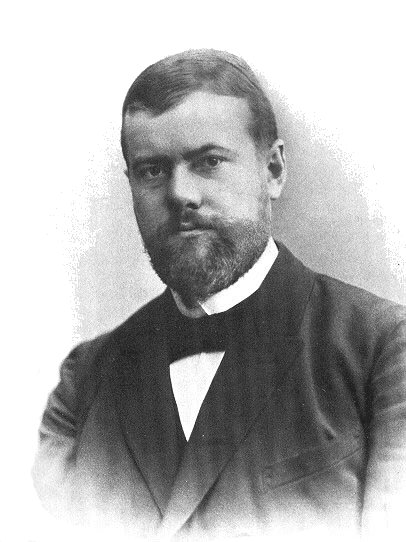The Protestant Play Ethic
 Do Protestant Christians today apply a 'work ethic' to their sporting endeavour? In this post I'll briefly be considering the possibility of a Protestant Play Ethic.
Do Protestant Christians today apply a 'work ethic' to their sporting endeavour? In this post I'll briefly be considering the possibility of a Protestant Play Ethic.Weber's Thesis
Max Weber's Protestant Ethic and the Spirit of Capitalism remains a seminal text in the field of sociology, by virtue of the audacious range of his thesis as well as the subtlety and carefulness of his explication.
Put crudely, Weber argued that Calvinism (a branch of Reformed Protestant Christianity) provided a worldview suited to the development of modern world order, and that this accounted for the rise of capitalism in Germany and much of Western Europe, rather than in Japan, for example.
Critiques of Weber's thesis, including my own in a previous post, are numerous, varied and often contradictory. (For more on these contradictions as well as a synopsis of these critiques see Giddens' introduction to the 1976 edition of the English translation of The Protestant Ethic).
An Explicit Ethic?
Weber suggested that after the initial historic stages of development in which the Protestant Ethic grew out of the faith whose name it bears, the capitalist world system would take on a life (or Geist) of its own. That is, the impetus required to kick-start the capitalist order is not required to maintain it.
What is intriguing however is how the notion of a Protestant Ethic has been consciously taken up and embraced by some Christians in the modern world. The ethic emphasises hard work, personal frugality and efficiency, and in my experience, many Christians have appropriated the notion of the Protestant Ethic for themselves. Even while the groundwork upon which Weber built is flawed, and while the unhindered drive for accumulation of wealth is clearly spoken against in the Scriptures, nevertheless his thesis has long found a resting place in the collective Christian consciousness. In the sense then that it is accepted and regularly appealed to, the Protestant Ethic - despite being mostly founded on conjecture - is a real thing.
When Play becomes Work
I wonder, however, if this atavistic ethic might be applied to the ways Christians view their participation in Sport in the present era?
As a Christian, I've never personally thought of Sport in this way, but then I never reached a particularly high level of competition. My own feeling has been that Sport has provided a diversion from the more arduous or mundane aspects of life; it has been a kind of welcome escape.
It would be of great interest to investigate whether those Christians whose living is made from playing Sport consciously apply a 'work ethic' to their sporting endeavour in much the same way as did the early capitalists described by Weber. Put simply, when Play becomes Work is it then subject to the Protestant Ethic?
Firstly, do elite Christian sports people feel a sense of 'calling' to their sport? Can it in this way be imbued with a spiritual and eternal significance? If this is the case then we might expect to hear elite Christian athletes talk of the ways in which God works in their sport lives, and perhaps even blessing their endeavours. I'm reminded of this quote from Eric Liddell, in the film Chariots of Fire.
"I believe that God made me for a purpose. But He also made me fast, and when I run, I feel His pleasure."
Secondly, Max Weber said that part of the reason the Protestant Ethic did not grow out of Catholicism was because Catholics placed a heavier emphasis on the family and so their families were more tight-knit. Calvinistic families, on the other hand, were more willing to forego one another's company in order to attend to matters of business. So, do we find elite Protestant Christian athletes setting aside 'normal' family structures and behaviours in order to devote themselves to the pursuit of excellence in Sport? This might mean living away from a spouse for long periods of time or foregoing child bearing until after the end of a career (in the case of sports women). This would be an interesting tangent to pursue.
Finally, does the relentless pursuit of success in the Sport-calling, vitiate or supplant an athlete's leisure time? Is that leisure time seen as detrimental to the furtherance of the athlete's Sport career? Is everything (sleep, diet, socialising, even church attendance or Sabbath-keeping) subject to the demands of their Sport?
These are questions I would love to ask of elite Christian athletes. I hope to be able to get some answers to these in the near future.

